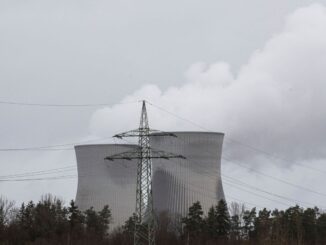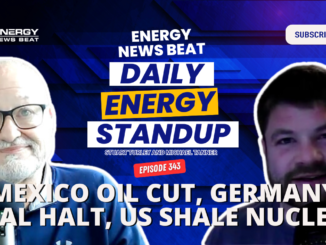
Biggest home-price drops in the data going back to 2000 triggered by the biggest QT and highest rates in ECB history.
By Wolf Richter for WOLF STREET.
Germany is a great example of what ultra-low interest rates and massive QE do to home prices: They whip them into frenzy. And what rate hikes and QT do to home prices: they tank them.
So now the ECB’s deposit rate is at 4.0%, up from -0.5% in June 2022. And the ECB has shed €1.85 trillion from its balance sheet since the peak in the summer of 2022, having unwound roughly 40% of the assets it piled on during the pandemic, and 21% of its total assets.
The ECB’s QE came in two forms: Massive and very attractive loans to banks that banks could use to buy assets with; and purchases of all kinds of bonds, including large amounts of corporate bonds. The pandemic era loans have now been totally unwound; and the bond holdings are being shed at an accelerated pace:
In 2008, the ECB’s policies started going berserk, first in reaction to the Global Financial Crisis, then in reaction to the Eurozone Debt Crisis, then in reaction to no crisis, an in 2016, the ECB pushed its deposit rate into the negative and it stayed negative until July 2022. And then in reaction to the pandemic, the ECB blew a fuse entirely.
As these policies pushed down longer-term interest rates, including mortgage rates, home prices in Germany more than doubled in 12 years, while the ECB’s balance sheet multiplied by a factor of nine over the same period, from €1 trillion to nearly €9 trillion. But that was then and this is now.
Prices of existing homes in Germany fell by another 1.5% in Q3 from Q2, the fifth quarter in a row of declines, according to the German statistical agency Destatis on Friday. These are used single-family houses, duplexes, and condos.
Year-over-year, prices fell by 11.2%, The year-over-year drops in Q1, Q2, and Q3 had been the steepest in the data going back to 2000.
From the peak in Q2 2022, prices dropped by 12.0%.
Between 2010 and the peak in Q2 2022, the index had soared by 104%. Note how it blew a fuse when the ECB blew a fuse during the pandemic. The index has now unwound nearly all the gains since January 2021:
Prices of new homes – new single-family houses, duplexes, and condos – dropped by 0.6% in the quarter, and by 4.5% year-over-year from Q3 2022, which was also the peak. The index has now unwound nearly all of the gains since Q2 2021. Between 2010 and the peak in 2022, prices had spiked by 80%.
Single-family houses and duplexes got hit the hardest. Among all homes, existing and new, prices dropped the most for single-family houses and duplexes: -12.7% year-over-year in the largest seven metro areas (Berlin, Hamburg, Munich, Cologne, Frankfurt, Stuttgart, and Düsseldorf); and -12.4% year-over-year in thinly populated areas.
Condos also dropped, but not as much: -9.1% year-over-year in the largest seven metros; and -5.6% year-over-year in thinly populated areas.
Home prices and the ECB’s balance sheet. The overall home price index, which covers new and used single-family houses, duplexes, and condos, fell by 1.4% in the quarter, by 10.2% year-over-year, and by 10.9% from its peak in Q2 2022.
And this overall home price index is what we’ll use for our epic comparison to the ECB’s balance sheet. The chart shows Germany’s overall home price index (red, left scale), and the ECB’s total assets in trillions of euros (purple, right scale).
It shows the reality of QE: Interest rate repression through policy rates (short term rates) and QE (longer-term rates) causes rampant home price inflation; and with higher rates and with QT, the equation reverts and home prices tank.
Their movements aren’t proportional: The home price index about doubled between 2000 and 2022, while the balance sheet multiplied by a factor of about 9. But for the last 10 years, they have moved in the same direction with gusto:
Enjoy reading WOLF STREET and want to support it? You can donate. I appreciate it immensely. Click on the beer and iced-tea mug to find out how:
Would you like to be notified via email when WOLF STREET publishes a new article? Sign up here



